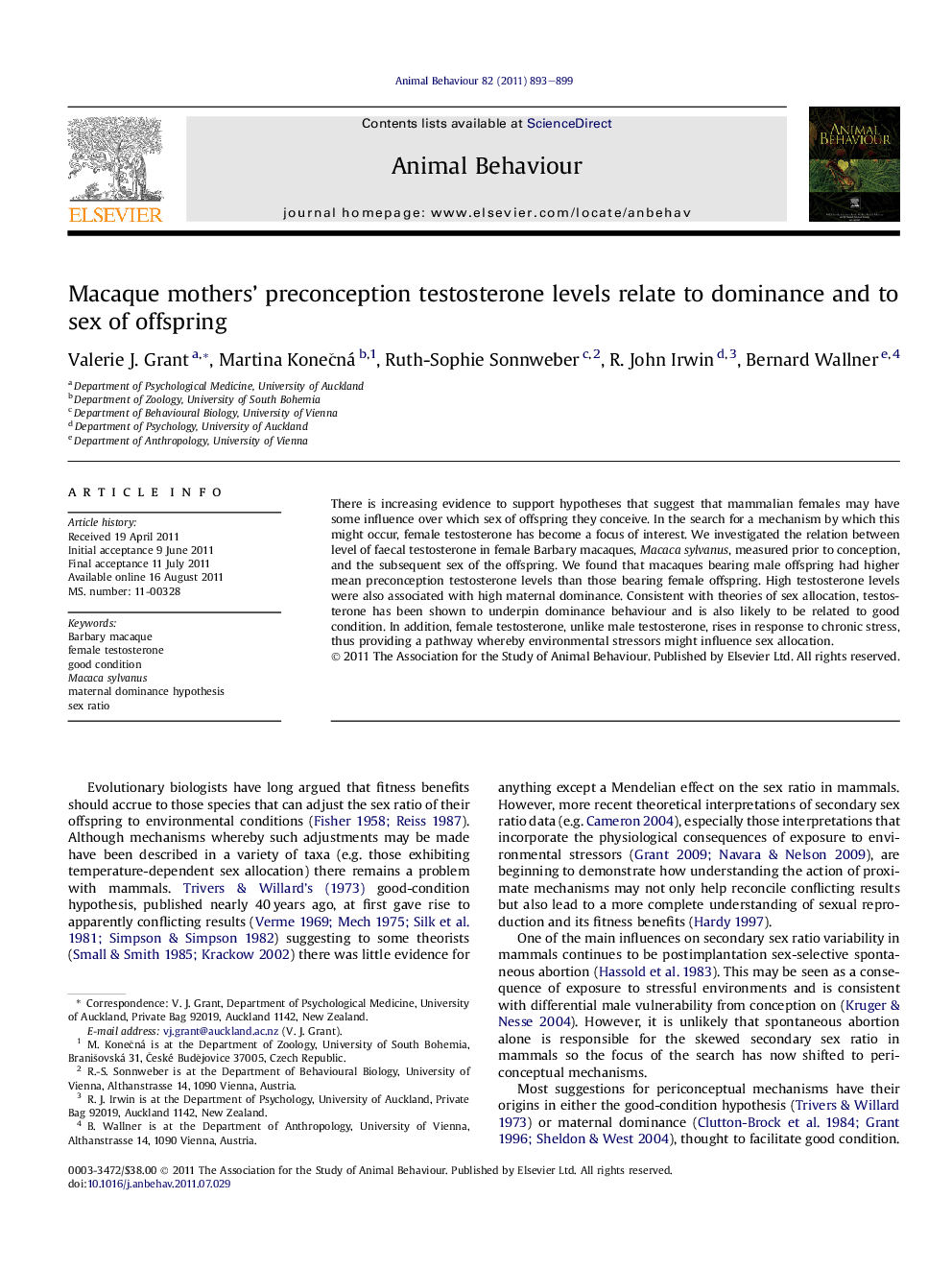| Article ID | Journal | Published Year | Pages | File Type |
|---|---|---|---|---|
| 2416660 | Animal Behaviour | 2011 | 7 Pages |
There is increasing evidence to support hypotheses that suggest that mammalian females may have some influence over which sex of offspring they conceive. In the search for a mechanism by which this might occur, female testosterone has become a focus of interest. We investigated the relation between level of faecal testosterone in female Barbary macaques, Macaca sylvanus, measured prior to conception, and the subsequent sex of the offspring. We found that macaques bearing male offspring had higher mean preconception testosterone levels than those bearing female offspring. High testosterone levels were also associated with high maternal dominance. Consistent with theories of sex allocation, testosterone has been shown to underpin dominance behaviour and is also likely to be related to good condition. In addition, female testosterone, unlike male testosterone, rises in response to chronic stress, thus providing a pathway whereby environmental stressors might influence sex allocation.
► Good condition has been hypothesized to lead to increased likelihood of male infants. ► Maternal dominance and testosterone usually promote good condition. ► We measured dominance and testosterone in female macaques prior to conception. ► Higher levels of each were significantly related to subsequent birth of male infants. ► Mammalian females may adaptively influence the sex of their offspring.
